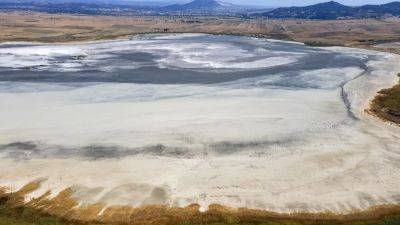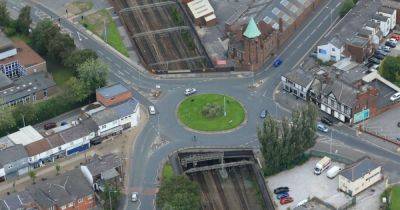In Sicily's karstic caves drought is re-writing the island's history
"Almost all the water consumed by Sicilians comes from underground," explains Professor Sandro Privitera, a geologist at the University of Catania, as we enter one of the many karstic caves of the Catania plain.
In these cavities formed in the limestone several million years ago, the cool dampness contrasts with the scorching heat on the surface. Drops of water fall from the stalactites. But this phenomenon is being altered by climate change.
"Normally, you can hear the sound of falling drops, but the water flows much less than before. Some of the limestone rocks are fossilising due to the lack of rain," explains the archaeologist, pointing to a bleached wall.
When we emerged into the furnace of the Grotta Palombara Nature Reserve - one of the seven reserves managed by the University of Catania - the professor's team had cut back the tall grass to limit the risk of fire. They have also planted trees that are more resistant to drought. Some of them flowered as early as January this year.
The vegetation in this area is steppe-like. Plants are becoming increasingly rare. "When the Greeks arrived here, everything was covered in trees. They have since been cut down and burnt to make way for pasture and farmland," explains Professor Privitera.
"Little by little, we are trying to restore biodiversity. Planting trees increases the soil's capacity to retain water, so that it remains moist and gives vegetation more chance to develop," explains the scientist.
Down below, a stream bears witness to the magic of karstic systems: although there has been almost no rain this year in the region, the water trickles down into a valley populated by trees, flowers and insects.
"Water is gold. It's an opportunity and a paradise. We can live








